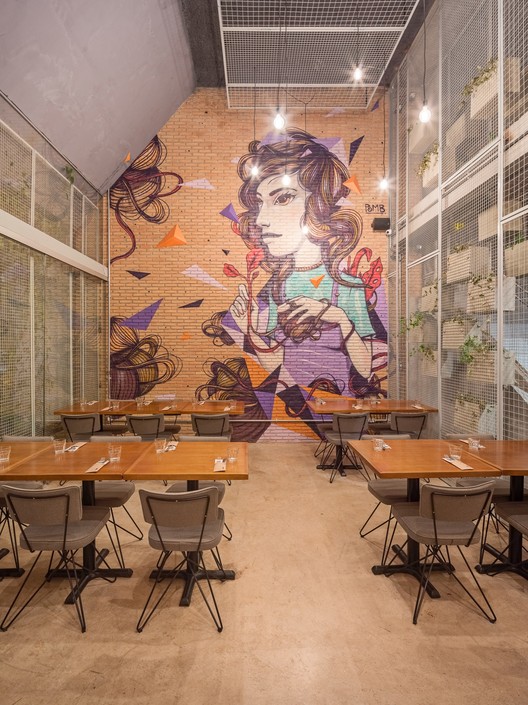
-
Architects: BLOCO Arquitetos
- Area: 262 m²
- Year: 2016
-
Manufacturers: Era O Que Faltava, Gravia, SERVINOX

Text description provided by the architects. The “South Wing” (Asa Sul) was the first residential zone to be built in Brasília´s original plan. The local commerce typology in that zone is defined by two stories buildings connected to each other side by side along the commercial streets between the “superquadras” (superblocks). They face the street in one side and the residential superblocks on the other side. Lucio Costa´s idea was to connect both sides through the buildings. However, over the years the most of the owners shut themselves away from the residential area, closing their “backsides” with fences or blind walls, turning their facades exclusively to the street.






























